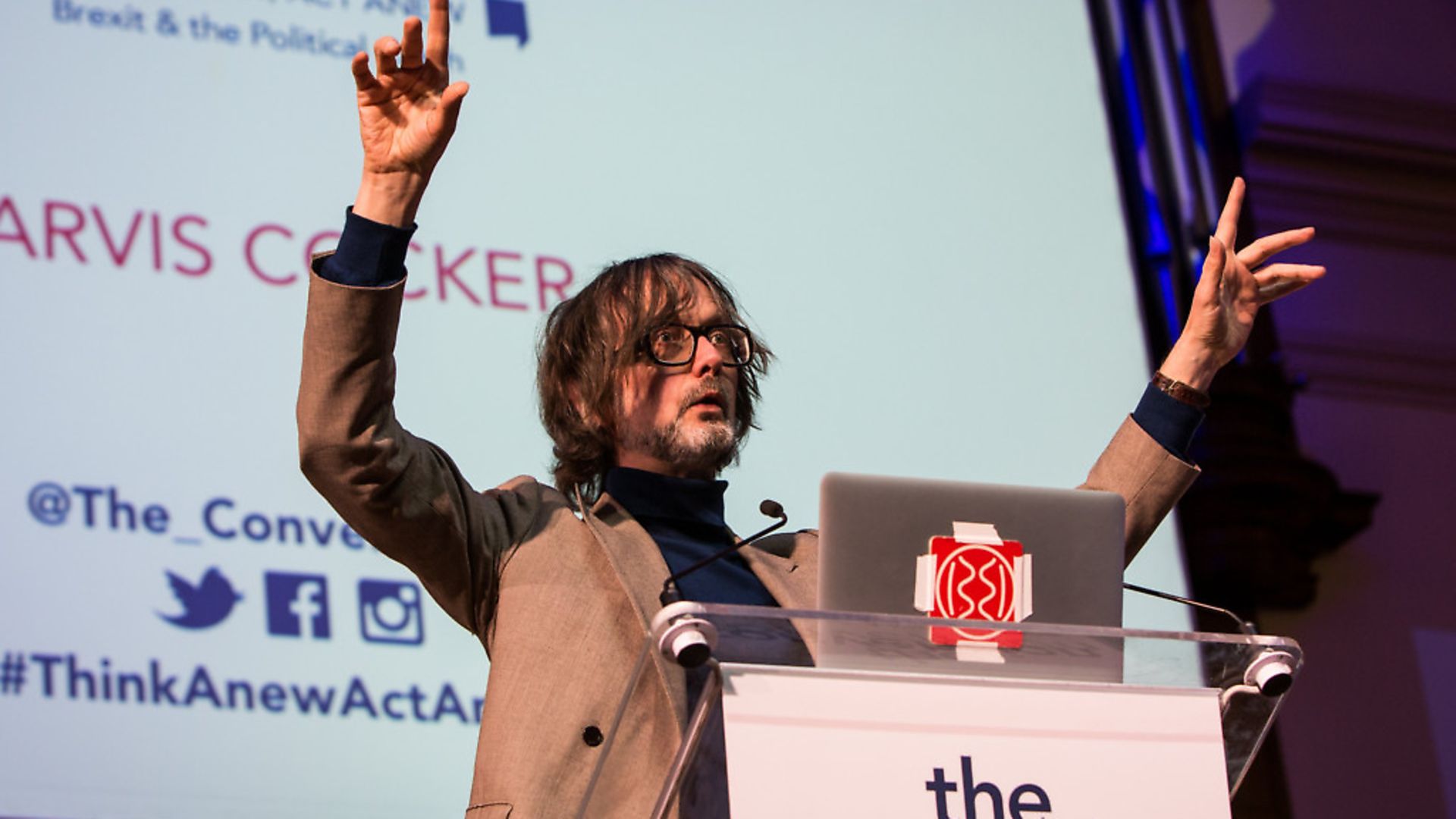
Politicians are refusing to debate Brexit, so the Convention on Brexit had to show them how it’s done,
Irrational negativity plays such a large part in our lives during these fractious times that we forget that human relations are usually harmonious and cooperative. Nothing is more likely to underline this truth than when you stage something like the Convention on Brexit & the Political Crash, which we did last weekend, at Central Hall, Westminster.
At every level it was a huge challenge and of course an enormous risk, but on the morning of May 12 about 35-40 people – many of them volunteers – came together to make the two days of debate and conversation work in a way that we had never dreamed of.
There was a lot of planning and organisation involved of course, but 50% of the success relied on people using their wits, working without the slightest friction and simply wanting the best for the event. It was easily one of the most uplifting experiences of my life, which I am sure is also true for co-director Rebecca Ashton and producer Julien Planté.
I mention this aspect of the Convention first because cooperation is the central benefit of the European Union. I simply do not understand those who think the UK is going to be better off withdrawing from the innumerable areas of collaboration that the EU fosters – from science to security, from medical research to humanitarian problems. We will be the poorer for the arrogant idea that we don’t need the help of our neighbours and one day, just as we realise the economy is tanking and our children’s futures are permanently blighted, we will see that we have lost much else besides. Cooperation is, after all, the key enabler of civilisation, to say nothing of peace.
The Convention was set up last winter to expose the appalling lack of debate in Parliament about the impact of Brexit, which MPs on both sides of the house have conspired to hide from the British public, although they are fully aware of what leaving the EU will do to the economy and such institutions as the NHS.
The choice of Central Hall was deliberate because I wanted to make the point that a real debate was happening just a stroll away from the silent chamber of the House of Commons. At a time when MPs were showing more self-regard then self-respect, we would break the enforced taboos and discuss every aspect of the appalling decision to leave the Union.
Then, just after Easter, the Prime Minister sprung the election on us and I foolishly imagined that there would be some kind of national debate about Brexit and that the Convention would become part of that. How wrong I was – the conspiracy of silence has extended from Parliament to the campaign. We are now witnessing one of the most sterile and dishonest election campaigns of all time. It shames our democracy, and, if the press weren’t so biased and the BBC was less cowed, a few more people might be demanding the debate the country so desperately needs.
In a way, the timing was perfect although the fact of the election meant that we would have to be scrupulously balanced. We had already decided to ask Brexiteers like Michael Gove, Douglas Carswell, David Elstein, Toby Young and Diane James, as well as voices from the right like Harriet Sergeant and David Goodhart, who have both written about the effects of immigration. And we had to make sure there was more or less equal representation from the parties.
All of this was for the good because there is no point trying to augment national debate if you are only going to have one side of the argument represented. People came up to me in Central Hall and asked why on earth we had invited Gove. I replied that every time a Brexiteer gave a speech they were, in effect, standing naked on the stage. I have not heard one practical advantage of leaving the EU articulated by a Leaver. Even Gove, persuasive and courteous though he is, found nothing new to say on the subject.
That voices like Gina Miller, Nick Clegg and Ian McEwan, three of the keynotes on the first day, were matched by the other side meant they shone all the more brightly. I am not exaggerating when I say that balance of the 18 panels ensured that the standards of debate and levels of information made available were far higher than anything we are seeing on television during this campaign. That seems an arrogant claim, but have you watched Question Time recently?
Throughout the preparation of the two days with Rebecca and Julien, I kept this quotation from George Orwell in my mind. It comes from his diary of the spring 1942. When I first read it, I was struck by how perfectly it captures the mood of our times.
We are all drowning in filth. When I talk to anyone or read the writings of anyone who has any axe to grind, I feel that intellectual honesty and balanced judgement have simply disappeared from the face of the earth. Everyone’s thought is forensic, everyone is simply putting a ‘case’ with deliberate suppression of his opponent’s point of view, and, what is more, with complete insensitiveness to any sufferings except those of himself and his friends.
Remainers are as apt to fall into this trap as Leavers, but as time goes on we will have one advantage and that is the harsh reality of Brexit effects. Very soon, the brilliant debaters like AC Grayling and Jo Maugham QC are not going to have to make their forensic case for remaining in the EU – it will be perfectly obvious that Britain has made a dreadful mistake.
But it is very important in these days of unprecedented bias in the press that the account of Brexit impact is kept up to date and accurate – that is why we will still need Maugham and Grayling and the likes of Ian Dunt, Rachel Johnson, Alastair Campbell, Lisa Nandy, Carole Cadwalladr, Bess Mayhew, Philippe Legrain and Mary Fitzgerald, the editor of our partner openDemocracy, all of whom spoke with great clarity and intelligence
If there was one thing that gave us all on the Convention team a special pride it was the number of new voices brought to the stage – people like Akala, Mete Coban, Nimco Ali and Amina Gichinga who all belong to the generation that is going to have to deal with the lasting effects of Brexit. The activist Caroline Criado-Perez and the writer and artist Raoul Martinez, both in their early thirties, gave striking keynote speeches that were packed with new insight and information.
Even more important to us was the participation of the 1,450-strong audience at Central Hall in each panel session and in the Open Forum, a process which I have never been involved in before but which I thought was really productive and inspiring – another example of how people are hardwired for cooperation more than conflict.
The Convention was a remarkable two days. Forgive me if I seem a little boastful here, but we never expected it to go quite so well and with so few hitches. We were as inspired by the speakers as the audience evidently was and that has made us feel incredibly proud. Debate is essential and we need to keep it going if our free and tolerant society is to survive this appalling mess.
Henry Porter is a writer, journalist and UK editor of Vanity Fair and founder of the Convention on Brexit









